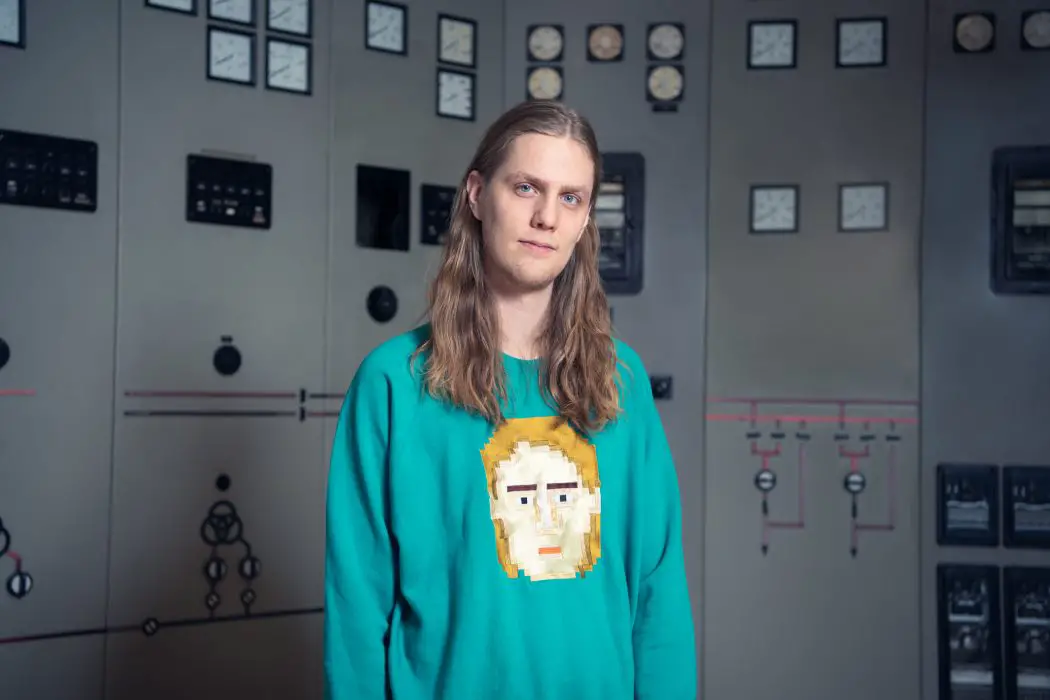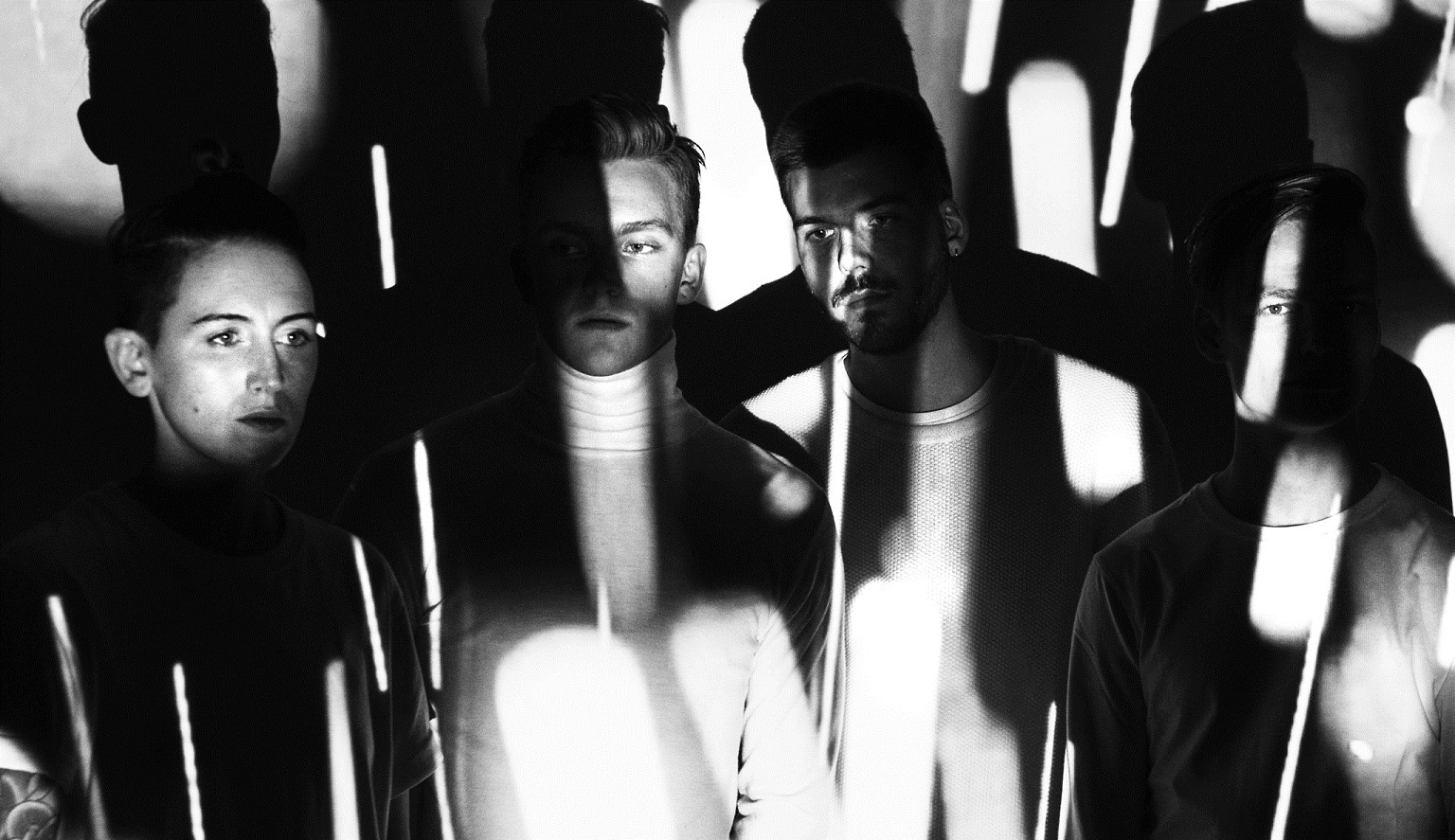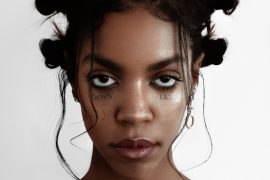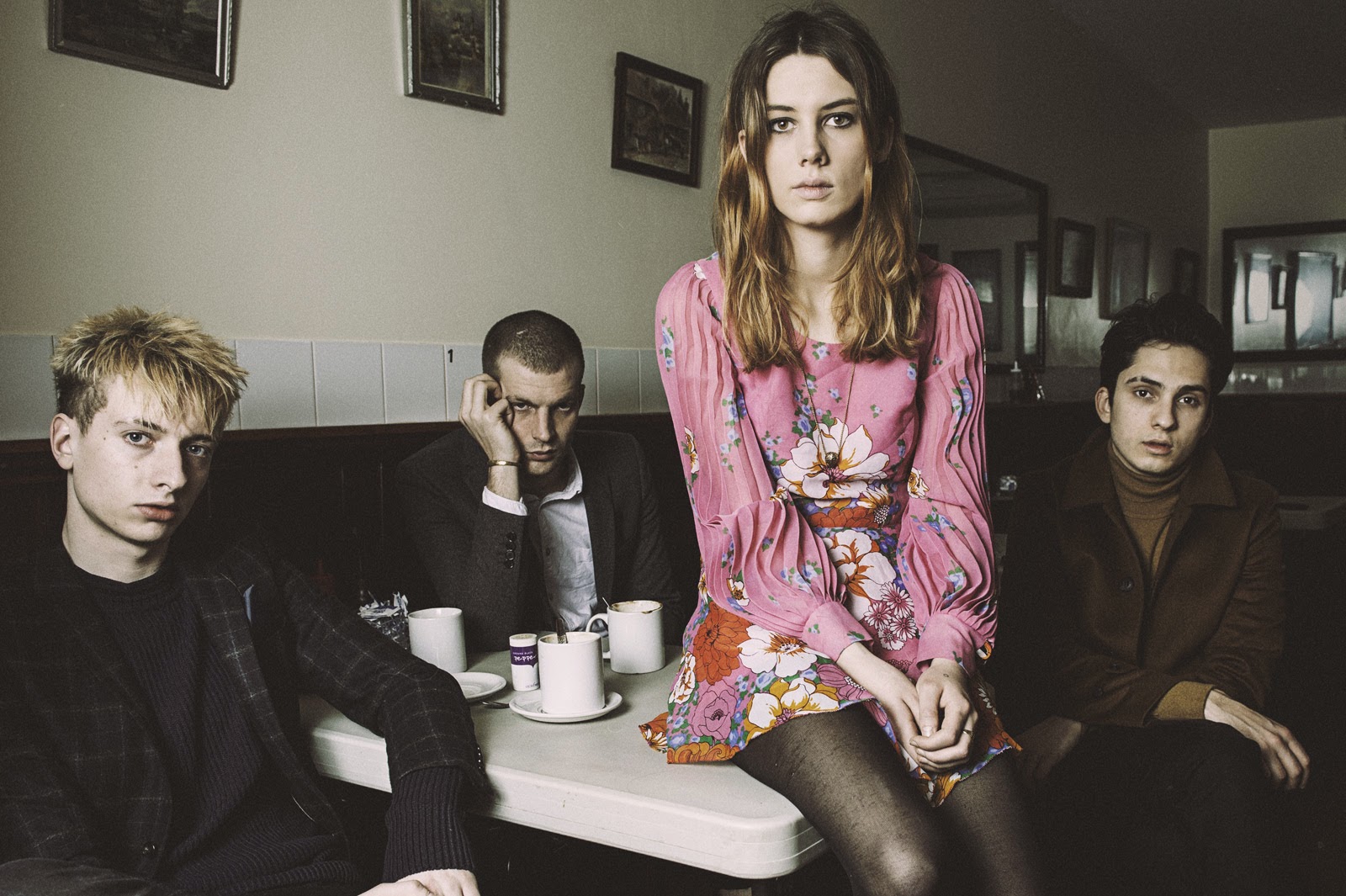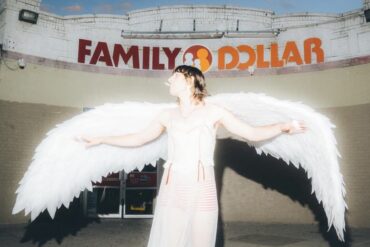Daði Freyr has not only given the world a laudable sonic aesthetic to get excited about, but he has also markedly curated an effervescent brand for himself, too.
“Think About Things” – Daði Freyr
“I realize that like, this doesn’t happen to everybody,” Icelandic artist Daði Freyr notes about his explosive rise. “There’s a lot of people that go through their whole life trying to, you know, get this one opportunity that I’m getting now, so I just have to use it as much as I can…”
Slated as Iceland’s representation in the now-cancelled 2020 Eurovision competition with his fictional backing band “Gagnamagnið,” Freyr has since seen substantial recognition across the globe thanks to his winning entry to the singing contest, “Think About Things.”

The song, one of two released in English by Freyr, has since amassed roughly eight million streams on Spotify alone, as well as a viral TikTok dance, solidifying Freyr’s undeniable rise. Furthermore, the song croons about Freyr’s young daughter Áróra, adding a wonderfully intimate touch to the song’s growing salience.
Daði Freyr is as humble as he is talented, matching an affable personality to his inimitable culpability as an artist. Through smart musical production and personable songwriting, Freyr provides listeners the opportunity to attach themselves to his music with unparalleled ease. Daði Freyr has not only given the world a laudable sonic aesthetic to get excited about, but has markedly curated an effervescent brand for himself, too. And although the world cannot experience the pleasure of watching Freyr’s explosive energy on a live stage, we can still be grateful nonetheless that he has given us the most feel-good and dance-worthy track of 2020 thus far.
Says Freyr of his sound, “I just want — the kind of music I listen to is the music that makes me feel good, and I want to make music that makes people feel good.”
Stream Daði Freyr:
:: A CONVERSATION WITH DAÐI FREYR ::
Atwood Magazine: So obviously, now, Eurovision is cancelled. But your song, “Think About Things,” has blown up a little bit; which is pretty cool, that you didn't even need the competition to get that acclaim.
Daði Freyr: Well, I’m pretty sure it didn’t hurt.
How does that feel, to now have this kind of on a global scale?
Daði: It feels really good. I have been working towards this for 15 years or something like that. So it’s really rewarding. And it’s — I realize that like, this doesn’t happen to everybody. There’s a lot of people that go through their whole life trying to, you know, get this one opportunity that I’m getting now, so I just have to use it as much as I can, because it’s probably not gonna come again.
You never know! It could happen.
Daði: Not in the same way as this. But I’m hoping that I can keep something going.
And does it feel kind of extra special, since it's a song about your daughter as well? Does it kind of help with that?
Daði: Yeah, like, I’m happy that it’s a song that I really believe in, and it’s — I wrote it, like, for me. Like, we competed [in Eurovision] with the same fictional band, Gagnamagnið, three years ago. And I just wrote this song [for that competition], like, I had this beat, and I just wrote something, some lyrics over it and just put it in the competition and didn’t expect anything from it. I wasn’t even going to sing it myself. So I’m really happy that that’s not the song that blew up. So it’s [“Think About Things”] a song that I made for myself, and one that I really can stand behind.
I think that's more special, too, when it's something you actually believe in. I feel like people can actually feel that a little bit too.
Daði: Yeah, I think it’s hard, like, Radiohead, they had their — because this is so comparable — they had “Creep,” and it’s a song that they hated from the start. Like, it was a song that they they made to like, fuck with people and then that was like by far their biggest song and everybody was waiting to hear that at a concert and they didn’t want to play it. But I’m fine with this.
That's good! And so obviously now you would have been preparing to leave for EuroVision. What have you been doing?
Daði: I would be in Iceland. We would bring our daughter there, and she would stay with her grandparents in Iceland. So we would go there first, and then go with the whole Icelandic team to Rotterdam. Yeah, that would be already happening.
Yeah, that's crazy. So now instead, obviously you're not doing that, have you been -- you have a home studio, and you're able to work from home -- Have you been cranking out a lot of new songs, writing a bunch and recording a bunch?
Daði: There’s one being mixed and mastered right now that I hope to release soon after. But then, like, even though there’s no Eurovision, there’s a lot of stuff that I have to be doing right now. I have a bunch of interviews and like, small things like the Icelandic TV station and I’m trying to build up all my social media, and working on getting an app where you can make your own pixelated face in the same style as ours, and there’s a remix being done right now.
That’s good for the brand, get that app up and running!
Daði: Yeah. So there’s a lot that I have to think of, but I’m trying to get into as much music making as I can.
And the band contains a lot of family members for you as well. Do you work with them, like your wife and your sister? Of course, you live with your wife, but do you guys work together frequently on making music?
Daði: Mostly, I’ve gotten my sister for a few like backing vocals, but Gagnamagnið is not a real band. They don’t actually play any instruments at all, and they only go on stage when we perform in a Eurovision related event. So it’s like a Eurovision band. I know of some people that think like, they’ve bought tickets in December or November that think we’re an actual band. I’ve been trying to make that as clear as I can, that’ we’re not, but I’m just gonna have to keep doing that.
Sorry for misunderstanding!
Daði: Oh, it’s fine! But I do a lot of stuff with my wife, like, she’s done with me most of our videos, except for the new one, where we got a whole crew with us. And we’ve made a song together, and like, everything that I do is filtered through her first.
Nice. And speaking of videos, the video for “Think About Things” has that fun dance. Have you seen a lot of people sending in a lot of attempts at the dances, whether they're good or bad?
Daði: I’ve seen a lot of different versions of that, yeah. Really I’ve seen twice it done like, completely correct. There’s always something that’s not the right thing, and it’s usually the sidestepping. It’s pretty specific, and people usually don’t get it exact. That was part of the reason why we made the dance; I wanted it to be like, easy enough that like, pretty much everybody could do it. Like if you can use your legs and arms, then you will be able to do it, hopefully; but not so easy that you can just do it from watching it once. Like, you have to put in a little bit of effort to learn it, but then I guess it’s a little bit harder than I was planning on making it because people don’t really get it.
But nobody's doing anything right now anyways, they have plenty of time to practice and get it right!
Daði: And people can just do their own version of it. I don’t get too offended.
When I write music…usually, I’m thinking of how it’s going to translate…and if people are going to dance to it.
Well that’s good. So how do you think that also, obviously, you've started seeing some success -- did you have an idea of what you thought success was, and has that changed now at all?
Daði: I want to be able to make a decent living from my music. I wanna [play] concerts where people come and like, they’re there to experience the music and not just me playing at some place where people randomly are, and I’m just playing for closed ears. So that’s pretty much been the plan. I don’t think that’s changed much.
And are you excited to play these shows in November and December? What could people expect from the show? Is it going to be an intimate setting?
Daði: Very much of a party. That’s what I aim to do. So, when I write music — it depends on the song, but usually, I’m thinking of how it’s going to translate to a live setting, and if people are going to dance to it. I’ve usually been playing just by myself alone on stage with synthesizers, and singing, but for the tour, I’m gonna bring a guitarist and a drummer. And neither of those people are in the fictional band.
And so when you're writing songs then, do you typically start with the instruments first and then kind of bring in the lyrics later?
Daði: Yeah, pretty much all the time. I usually don’t even start really writing the melody — the lyrics come last for me, the melody is second to last — but I usually don’t start writing the vocals until I like the production even with no vocals on it.
Okay, interesting. And have you made any production for other people? Have you done anything like that in the past?
Daði: No, not really. It’s mostly like, I had a band before, so I made stuff for more than me, but I’ve never like, produced a track that I wasn’t on. And also, I have a pretty specific sound aesthetic, I guess.
[…T]he kind of music I listen to is the music that makes me feel good, and I want to make music that makes people feel good.
Fair enough. So what is your favorite part about making music, then? What do you love most?
Daði: When something starts coming together, like, when I — because I can, especially I’ve been experiencing it a little bit now that I can be in the studio for days, and just make things that I don’t like. And when something starts happening, then I can work on it pretty fast. But sometimes it takes me a while, so it’s the rewarding bit of actually hearing something come together. Especially because I write everything with a beat first, it’s different, but it doesn’t take me so long to like, to write melodies then
Nice. And do you have any current favorite artists that you're listening to in quarantine?
Daði: I’ve been listening to Aurora, which is Norwegian singer. Hot Chip — I’ve been listening to [them] for a while, they have been my favorite band, or one of them, for a long while. Chromeo; Bill Withers; and I just started listening to Bill Wurtz. I just thought he was funny on the internet at first, but then I started really listening to his music and it’s like, although it’s silly like, he’s got some really interesting ideas.
Yeah. Very talented. Have you seen “a history of the entire world, I guess?”
Daði: Yeah, yeah. I think that might be the best video on the internet.
I agree!
Daði: Yeah, so I’m going to try to contact him, and see if we can do something together.
You should. Absolutely.
Daði: I would love to have like a little part of something with his sound, especially his songwriting.
Very clever. All right, well, I only just have one more question. What do you want people to take away from your music in the future, looking back on your career?
Daði: Spread positive vibes. That’s pretty much it. Like, I just want — the kind of music I listen to is the music that makes me feel good, and I want to make music that makes people feel good. Especially in a concert setting. I want people to leave the concert like feeling energized and inspired.
— — — —

Connect to Daði Freyr on
Facebook, Twitter, Instagram
Discover new music on Atwood Magazine
? © Daði Freyr 2020
:: Stream Daði Freyr ::
IN “THINK ABOUT THINGS,” DAÐI FREYR ILLUSTRATES AN IRREPLACEABLE BOND
:: TODAY'S SONG ::

